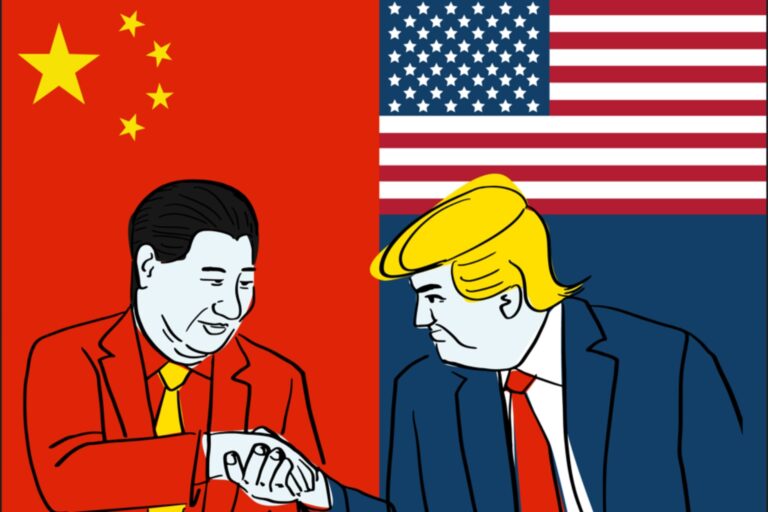 While many Americans may still know little about it, the expected transition in Chinese leadership this fall—the first in a decade—may prove to be much more influential to East Asian politics than the comparable American election. With the downfall of Bo Xilai, and with both communist cadres and army political appointees rallying behind Hu Jintao, it seems clear that Hu’s chosen successor, Xi Jinping, would see smooth sailing from now until the Fall meeting of the Chinese Communist Party’s (CCP) National Congress where he will take over the position of General Secretary. Xi’s speech before the Central Party School of the CCP last month has, in essence, codified his image as the leading political and ideological figure to a new generation of government bureaucrats.
While many Americans may still know little about it, the expected transition in Chinese leadership this fall—the first in a decade—may prove to be much more influential to East Asian politics than the comparable American election. With the downfall of Bo Xilai, and with both communist cadres and army political appointees rallying behind Hu Jintao, it seems clear that Hu’s chosen successor, Xi Jinping, would see smooth sailing from now until the Fall meeting of the Chinese Communist Party’s (CCP) National Congress where he will take over the position of General Secretary. Xi’s speech before the Central Party School of the CCP last month has, in essence, codified his image as the leading political and ideological figure to a new generation of government bureaucrats.
Assuming that Xi’s appointment is assured, one can start to extrapolate China’s domestic and foreign policy priorities. What direction will Xi most likely lead China as it faces mounting challenges at home and abroad? Among them, three will represent the most challenging: managing the U.S.-China relationship, steering China away from a sharp economic slowdown and safeguarding domestic political cohesiveness.
“Acute economic competitors, political adversaries and military opponents”— that is how a leading Chinese periodical, Nanfengchuang (南风窗), characterized the nature of the U.S.-China relationship as being perceived by both sides of the Pacific in its coverage of Xi’s visit to the U.S. in February. On the Chinese side, the U.S.-China bilateral relationship has traditionally been the primary responsibility of the General Secretary or Chairman of the People’s Republic. Beginning with Deng Xiaoping in the 1980’s, every Chinese leader has personally taken the initiative to manage and balance the somewhat turbulent U.S.-China relationship and has gone a long way in defining the degree of cooperation or animosity between the two.
To this end, Xi’s recent visit to the U.S. can be used as a barometer to gauge his ability and willingness to work with his American counterparts on a wide range of issues. He did not shy away from difficult topics like China’s human rights record, calling his government’s position on the subject a “work in progress.” His charisma and ease with these high-profile meetings and dialogues stem from the fact that he, unlike many of his compatriots and predecessors on the Politburo, has frequently traveled abroad before his rise to the top echelons of power. While his understanding of America’s wider foreign policy agenda may be far ahead of that of the earlier generation, his foreign policy experience is limited. Over the last year, the Party has worked hard to boost Xi’s credentials and help him to grasp the deeper nuances that mark North and Southeast Asian relations, especially by promoting a series of meetings and summits over the last few months with representatives of Japan, South Korea and Russia.
Equally as important, one must understand the era in which Xi came of age and how his personal experiences in the Chinese countryside affected his leadership qualities as he moved up the ranks of the Communist party. His father was imprisoned in 1968 for his role in the publication of Liu Zhidan’s biography and was accused of leading an anti-Party clique. Short thereafter, Xi was sent off to the countryside in Shaan’xi Province during the “Down to the Countryside Movement.” He once reflected upon this period of his life saying that he “ate a lot more bitterness than most people.” Xi experienced firsthand the result of infighting, suspicion and politically driven mass movements. Without a doubt, this will shape his distrust of political adventurism and the type of cavalier ideological shocks to the system that is advocated by Bo.
Once he comes to power, Xi will have to balance the “backseat drivers”: a myriad of expectations, interests and demands from a modernizing military and provinces vying for development funds, as well as social welfare programs lacking sufficient support. Faced with the problems of a slowing economy, rampant corruption and the Bo Xilai scandal, the CCP’s propaganda and news outlets have turned to a renewed sense of nationalism to quell the turbulent political atmosphere. Distractions such as indigent and illegal foreigners and infringements on sovereign territory go a long way to mask growing uncertainties over the direction of the nation amid an economic slowdown of an unknown severity.
On the economic front, Xi is renown for possessing little tolerance for corruption and promoting fast but solid economic growth. Prior to his current Party position, he was Party chief and head of Shanghai, as well as the provinces of Zhejiang and Fujian. His earlier appointments brought him into the limelight for overseeing breakneck periods of economic growth and prosperity. In Fujian, where he was posted for 17 years, Xi rose from the position of vice mayor of Xiamen to governor of the province. Similarly, in Zhejiang, where he spent five years as the provincial head, he oversaw periods of up to 14 percent growth per year.
Today’s Chinese political landscape has moved glacially away from the “strong-man”—i.e. a rule by a single personality that often defines closed, one-party political systems. Thus, while Xi will most likely take the top position within the Party this fall and presidency of the People’s Republic in the spring of 2013, the trend towards consensus-building and collective management in domestic and foreign policy making means that his position as “first among equals” has limits. The possibility of a cult of personality, positive or not, threatens the Party rule. As Fukuyama describes in his ‘Bad Emperor’ theory, a good despot has the ability to take the lead and bypass checks and balances, but an incompetent or unpopular one may lead to disaster.
Western analysts are becoming increasingly aware of the extent to which intra-Party rivalry and factionalization exist among the top circles of power. Xi, like Bo, has been labeled as a “princeling,” a growing class of mid to high ranking Communist Party officials whose have risen to power on the coattails of their parents. They stand in contrast to the Communist Youth League faction of Party leaders who were groomed under Hu Jintao’s tutelage. This second generation of CCP cadres has worked hard to create the aura that they are the sole true defenders of the Communist faith, a perception which has garnered resentment by some. Shifts in the composition of the Politburo Standing Committee may bring to the fore competing interests between Hu’s Communist Youth League, Shanghai Clique and other circles within the Party. This intra-Party discourse and potential for disagreement may be an opportunity for Xi to position himself as the bridge to compromise within the Standing Committee.
The larger power transition within the CCP is already under way in cities and provinces around the country. Xi’s appointment aside, the central Politburo changes coming later on this year may end up being less harmonious than most predict. At the moment, observers in and outside China have only managed a consensus on the fact that Xi Jinping and Li Keqiang are shoo-ins for the top two positions in the Politburo Standing Committee. Boxun (a site which shot to fame by providing inside information leading up to the Bo Xilai dismissal) has published reports stating that the upcoming Standing Committee will be reduced from nine to seven members. If true, the struggle to determine the composition and makeup for that body will a game of tug of war among Xi, Hu, larger power brokers and interest groups vying for control.
Written by Bernard Geoxavier
Bernard Yudkin Geoxavier is a Master’s Candidate at the Hopkins – Nanjing Center in Nanjing, China, writing his research thesis in Chinese on a new direction in China’s foreign policy. Before coming to the center he was a Chinese instructor at Belmont Hill School in Belmont, Massachusetts and graduated from Middlebury College with a degree in Chinese Literature and History.



